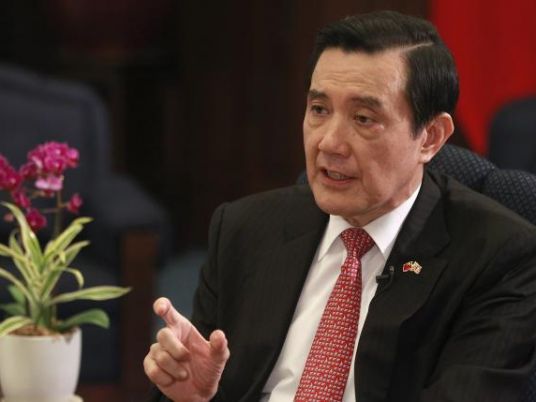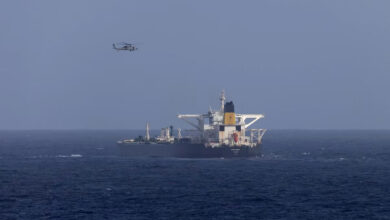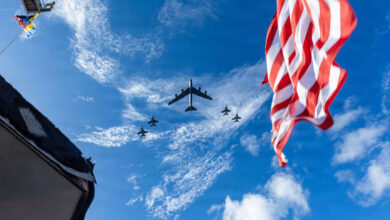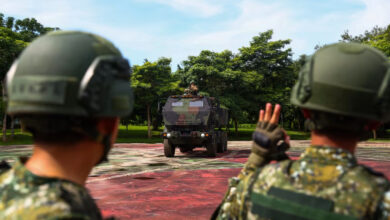
Taiwan President Ma Ying-jeou, ignoring US criticism, flew to a disputed island in the South China Sea on Thursday to reaffirm Taipei's sovereignty and said the trip was aimed at promoting peace.
Ma's one-day visit to Itu Aba came amid growing international concern over rising tensions in the South China Sea, especially in the wake of Beijing's rapid creation of seven man-made islands in the Spratly archipelago.
Washington, Taiwan's biggest ally, on Wednesday called Ma's trip "extremely unhelpful", adding it would not do anything to resolve disputes over the waterway.
But Ma, who steps down in May, said he had told the United States about his trip a few days beforehand.
"The US and we (Taiwan), when it comes to the big direction for the South China Sea, are the same," Ma told reporters. "We all hope for peace, hope there is no conflict or war."
Beijing on Wednesday reiterated that China and Taiwan had a common duty to protect Chinese sovereignty in the South China Sea. Beijing, recognized by most of the world as the head of "one China", deems Taiwan a wayward province to be taken by force if necessary.
Taiwan has just finished a $100 million port upgrade and built a new lighthouse on Itu Aba, known as Taiping in Taiwan. The island, which lies in the Spratlys, also has an airstrip, a hospital and fresh water.
Both China and Taiwan claim most of the South China Sea. Vietnam, the Philippines, Malaysia and Brunei also have competing claims.
Vietnam's top official in Taiwan said Hanoi "resolutely opposed" Ma's visit. The Philippine Foreign Ministry said all parties had a shared responsibility to refrain from actions that could increase tensions.
Ma said the visit was now or never.
"This was the time to go," he said. "If I didn't go now, it would have been too late."
Given the tensions over the South China Sea, few senior political officials from any of the claimants have visited the contested region in recent years.
Ma's visit follows elections won by the independence-leaning Democratic Progressive Party (DPP), which declined a request by Ma to send a representative along. The DPP said Taiwan had a responsibility to maintain peace and stability in the area.
The claims of both China and Taiwan are based on maps from the late 1940s belonging to the Nationalists, when they ruled all of China. The Nationalists fled to Taiwan in 1949 after losing the Chinese civil war to Mao Zedong's Communists.
China has appeared unfazed by Taiwan's upgrading work on Itu Aba. Military strategists say that is because Itu Aba could fall into China's hands should it ever take over Taiwan.
The 46-hectare (114-acre) island supports around 180 people, about 150 of them coastguard personnel.




